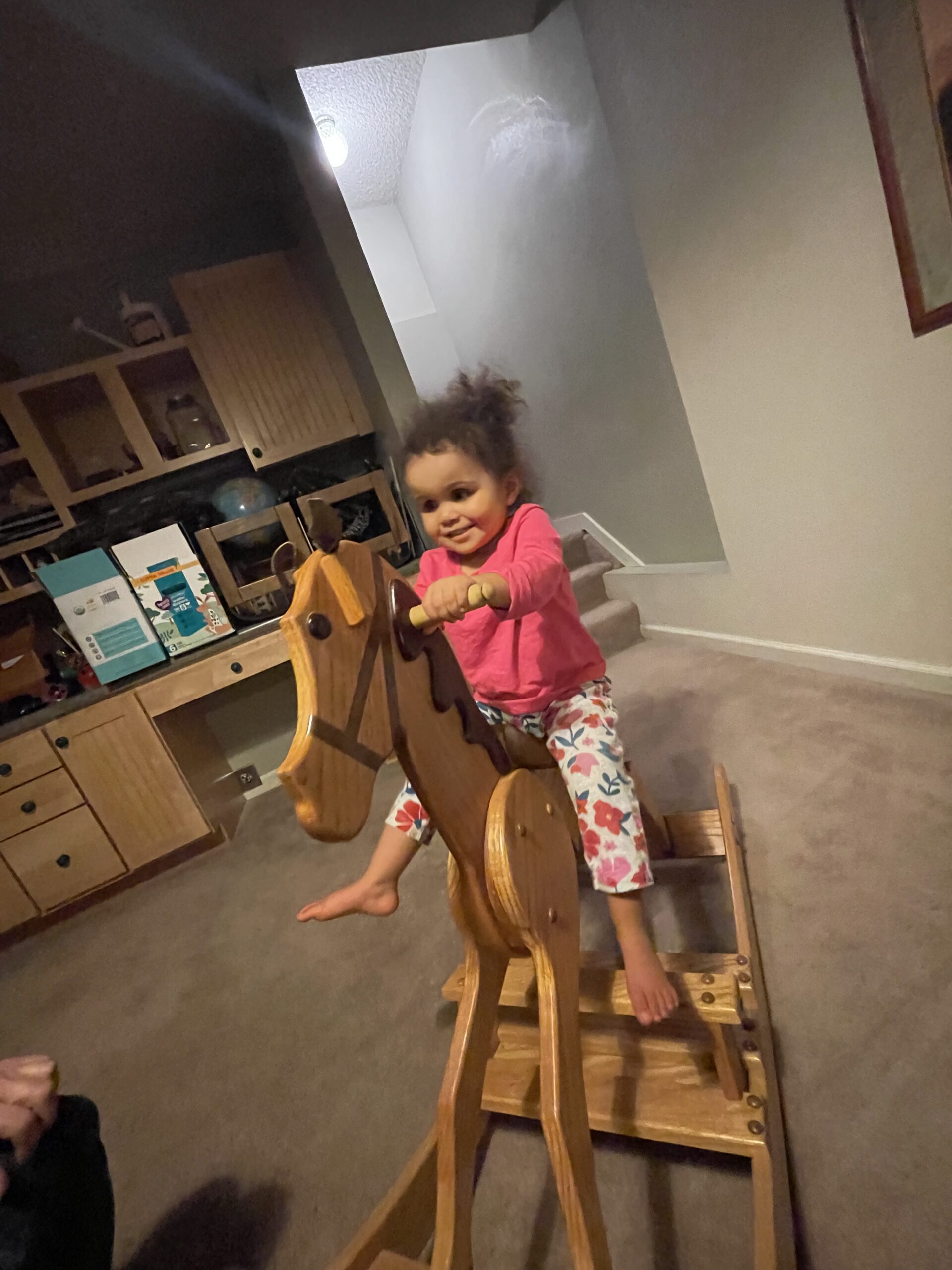When we think of curriculum, we usually think about a structured school environment which teaches the 3Rs: reading, writing, and arithmetic (math). However, learning starts long before that because becoming self-sufficient requires more than just books and calculators. Growth includes a whole host of life skills. And learning these starts long before we begin attending school. We are taught how to clean up after ourselves, how to share, how to navigate our environment. For most people this happens by observing others. Our kiddos with visual impairment may miss out on this incidental learning, a term used for the things we learn unintentionally by repeating what we see others do. In fact, researchers say that more than 80% of what we learn before the age of 5 is this kind of learning. And so, kiddos with visual impairment need very structured and purposeful teaching to learn all of the things that they might be missing. This is where the Expanded Core Curriculum (ECC) helps.
The ECC are concepts and skills that require specialized instruction and so are taught in the school setting by Teachers of Students with Visual Impairment. However, many of these skills can also be coached by parents and providers before the kiddo begins school. The ECC is based around 9 core components:
- compensatory and functional skills, including communication modes;
- orientation and mobility;
- social interaction skills;
- independent living skills;
- recreation and leisure;
- career education;
- assistive technology;
- sensory efficiency skills;
- self-determination.
Skills are developed in each of these areas well before school starts and in more than just a traditional academic structure. For those working with young children, this often starts with narrating daily activities, which is especially important for those kiddos with visual impairment. When learning to share (social interaction skills) we can’t just expect that the child sees that we are taking turns with a toy or object. Instead, we will need to talk about what is happening, whose turn it is, and the overall benefits of sharing. Another example is meal time (independent living skills), when children may wash their hands or their tray after their meal. Kiddos with visual impairment may need us to talk them through our expectations and what each step requires of them.
The expanded core curriculum doesn’t have to add hours to your day if you use everyday activities as an opportunity for learning. Take your kiddos to the grocery store and talk to them about the smells and the sounds and the textures around them. Take them outside and describe the feel of the grass and the wind on their face. Talk about your daily routines, what you are doing and where you are going in your house. All of these things help our kiddos learn about what life entails and how they can be a part of it. If you need any support in finding opportunities to help integrate the Expanded Core Curriculum into your daily routines reach out for an evaluation. Our therapists at Kid Physical have over 32 combined years experience offering specialized, holistic healthcare for children of all ages. Our top priority is providing support for both caregivers and children so that they can reach their highest potential.
A few more resources on the Expanded Core Curriculum
Overview of the Expanded Core Curriculum from Paths to Literacy
The Expanded Core Curriculum for Students Who Are Blind of Visually Impaired by APH
The Expanded Core Curriculum by Teaching Students with Visual Impairments

